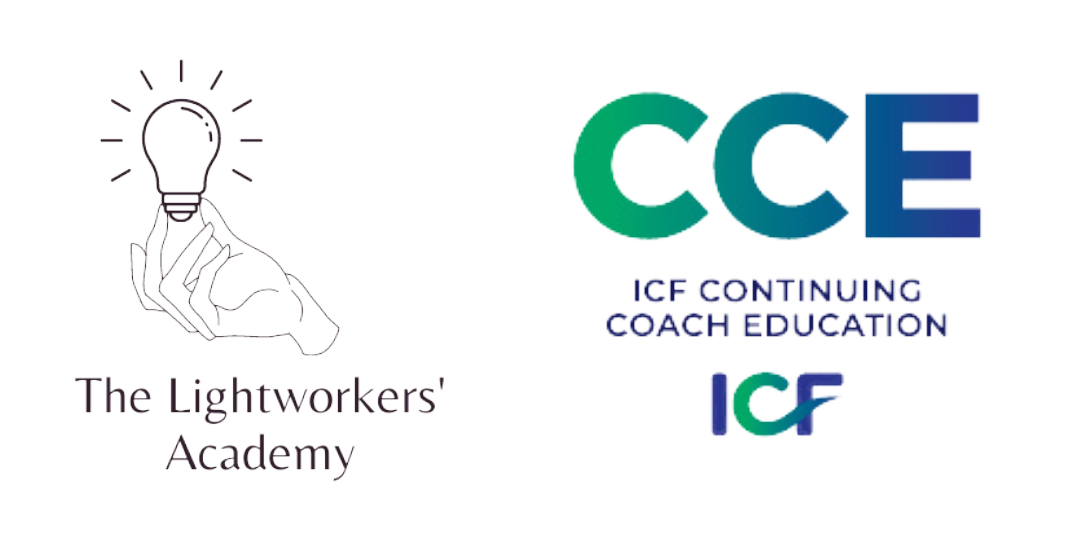The Coach’s Survival Guide: How to Avoid Getting Scammed by Coaching Schools
Written by: Amanda Espinosa

So, you’ve decided to pursue your dream of becoming a coach. You’ve done your research, you’ve set your intentions, and you’re ready to take the leap. But before you enroll in any coaching school that promises to turn you into the next Tony Robbins or Oprah Winfrey (and really, you should be side-eyeing any school that promises to turn you into either of those two, but that’s for another article), take a step back and consider these essential tips to avoid getting scammed and ensure you’re investing in a reputable program:
1. Seek accreditation or seek case studies or testimonials: Do your due diligence and research the school’s credentials. Look for accreditation from reputable organizations like the International Coach Federation (ICF) or the Association for Coaching (AC). If your heart is set on a school without nationally- or globally-recognized accreditation, I strongly advise you seek out case studies and testimonials from past students to get a sense of their experiences. Trust me, they will be honest about sharing their experiences, even if they are negative… especially if they are negative. And don’t you want that tea, er, information?
2. Ask them: how is my success/learning measured? Don’t be afraid to ask tough questions. Very often if a school is not legitimate or is a certification mill, they will not have any meaningful learning measures. Sure, they will offer you a certification at the end, but what does that really mean? Quite literally anyone, their grandmother, and their grandmother’s pet can call themselves a coach, with or without a certification. Heck, my neighbor’s cat just got “certified” as a confidence coach for dogs.
The point is that the bar of entry for coaching is low. A certification is nice, but it doesn’t necessarily a great coach make, especially if the program is self-paced with minimal hands-on practice. How is the acquisition of learning (skills, knowledge, abilities) measured? How is your knowledge being tested? Your skills and abilities evaluated? A good coaching school should have clear metrics for measuring your progress and success. If they can’t answer this question, it might be time to look elsewhere.
3. Ask about levels of support: Coaching can be a challenging journey, so it’s crucial to have the right support system in place. Are they there for you when you need them, or are you left to fend for yourself in the wild, wild world of coaching?
Find out what kind of support the school offers, whether it’s mentorship, coaching sessions, or community resources.
4. Seek where the opportunities are for practice: Practice makes progress, especially in the world of coaching. Do not trust a school that offers you a professional coach certification without opportunities for real-world practice.
I don’t care that the owner of the school makes 8 figures and drives a 2025 Pontiac Spaceship and promises that “you can do it too with the right MINDSET”, or that their PDFs shoot streamers and glitter out of your computer screen. NO coach training program worth its salt will certify you as a professional coach unless they can validate that you are getting hands-on experience. Whether they facilitate coach roleplay for all students, offer coaching hours, or require you provide pro-bono coaching hours at your own pace, your program should include SOME opportunity for you to practice the skills you’re acquiring or refining. Because the truth is that any skill that you want to master REQUIRES your practice. It is not enough to read about it, and it’s not enough to be given a written test on it.
Look for opportunities within the program to practice your skills and gain real-world experience.
I think I’ve said that enough. Right?
5. Be wary of high-ticket, low-ticket tier pricing: WITAF is with “low-ticket, high-ticket” price tiering, amirite!?
If you’re new to these coach scammin’ streets, you may not know what I’m talking about, so here’s the deal: there are some coach certification programs that offer to help you become a “certified coach” at a particular (affordable) price. These are their “low-ticket” programs. They might cost $297 and—on its face—it seems like a pretty good deal. Sure, much of the work is self-paced, but at least you get group coaching support and access to the coaching community so you can ask questions to a team of coach mentors or coach instructors. 😊
The only problem dear one, is that at this level, you are not receiving the support you really need to make the 5 or 6 figures you were told you could make. Weekly group coaching, printed PDFs, and a lovely, but equally lost coaching community simply won’t cut it. So, you don’t hit your goals, and as a result, you feel like there’s something you are doing wrong.
“You’re not doing anything “wrong”, the coaching team says, you’re just enrolled in a low-ticket program, and you need to invest in the higher-ticket program. You need to invest in YOURSELF”.
So, there you go: forking over a few thousand dollars more for higher levels of coaching support through this higher-ticket program. Surely, you’ll be a millionaire coach in no time now that you’ve invested in YOURSELF! (spoiler alert: no.)
Once you’re in the high-ticket coaching program, you are lucky if you get meaningful time with a mentor or instructor, let alone personalized coaching or mentorship. Nope, at this level, you can expect cookie-cutter, scripted coaching sessions which may or may not get borderline abusive depending on how off-script the coach team gets with the whole “law of attraction, you’re not manifesting success because you’re not thinking about success” angle (look up Wes Watson’s “coaching program” on YouTube for ideas on how not to coach people).
Short story long, if the pricing seems too good to be true, it probably is.
There’s nothing wrong with having different levels-or tiers- in a coach training program with appropriate levels of support, but pricing should always be transparent, promises should be realistic and proportionate to the quality of materials, practice and support you receive, and as always, it’s best to go into any coach training program 100% aware of the level of supports you’ll be receiving, including: who you’ll be coached by (especially if you’re expecting to be coached by the program’s founder), their coaching approach, their coaching style, and whether or not it’s a good fit for you.
6. Just Say “Let Me Think About It”: A reputable coaching school will respect your decision-making process. Take the time to weigh your options and don’t let yourself be pressured into a decision. Trust your instincts and give yourself the time you need to make an informed choice.
When in doubt, take a breather. Don’t let pushy sales tactics pressure you into making a hasty decision and simply say: “Let me think about it.” They might give you the coaching equivalent to the salesperson line: “what do I gotta do to get you into this car today?”
Perhaps something like: “what is your hesitation/barrier/concern, etc.?” It’s a fair question, and if you want to share, fine. Just know that it leaves the door open for them to close your sale. If you don’t mind that, great! Hear them out.
But if you really don’t have a good feeling or are genuinely reviewing all of your options and want to avoid being hasty, then you can be polite but assertive: “I am reviewing my options right now. I appreciate your time today, and I’d like an opportunity to review what we talked about today, and get back to you.” Boom. Simple, honest, polite. If they still press, abandon all politeness. I won’t write out what you should say in this article, but I won’t judge you for what you say either…
Otherwise, if they respect your decision and you decide against going with their program later on, then the next time they reach out to you, simply respond with: “Thank you again for taking the time to meet with me and share information about your school. I’ve decided to pursue other options at this time.”
7. Trust your instinct/gut/inner voice: Your intuition is a powerful tool. If something feels off or doesn’t sit right with you, trust your gut and explore other options. Trust your instincts and give yourself the time you need to make an informed choice.
8. Is the coaching personalized or is it cookie-cutter? Personalized coaching can make all the difference in your learning experience. Beware of coaching programs that offer a one-size-fits-all approach to coach training, coaching, or mentoring. Ensure that the program offers tailored guidance and support to meet your individual needs.
9. Know What You’re Paying For: Before signing on the dotted line, carefully review the tuition agreement, as well as any school policies, including grievance procedures and tuition refunds. Make sure you understand all terms and conditions to avoid any surprises down the road.
Thoroughly examine the program curriculum and faculty. The curriculum should be comprehensive, well-structured, and aligned with industry standards. Look for programs that offer a balanced mix of theoretical knowledge and practical skills that are relevant to the coaching field.
Additionally, researching the faculty members of the coaching program is essential. Experienced and qualified instructors can greatly enhance the learning experience by providing valuable insights, guidance, and mentorship. Check the credentials and professional background of the faculty members to ensure they have the necessary expertise to deliver high-quality education.
If it’s possible, request to review the learning portal, course materials, textbooks, and/or resources provided in the program. A well-rounded curriculum should cover a wide range of coaching techniques, tools, and methodologies to equip students with the knowledge and skills needed to succeed in the coaching industry.
10. Look for a money-back guarantee: Be cautious of programs that guarantee unrealistic results or success rates. Coaching is a personal journey that requires ongoing growth and development, and there are no guarantees of instant success. Look for schools that emphasize the importance of hard work, continuous learning, and ethical practices.
A reputable coaching school will stand by its program and offer a money-back guarantee if you’re not satisfied. Look for this assurance as a sign of a trustworthy institution.
Listen. Scammers gonna scam. But by following these tips, you can navigate the world of coaching schools with confidence and avoid falling victim to these grifting gurus. Remember, investing in your education is an investment in yourself, so choose wisely and pave the way for a successful coaching career. And please STOP forking over $15,000 of your hard-earned money for 15-min scripted coaching calls!
PSSST….I created a special resource just for you: How to Avoid Getting Scammed by a ‘Coach Training’ School: Anti-Scam Checklist for Aspiring Coaches, a handy guide to keep desk-side, so that you may always vet coach training programs with a skeptical and informed eye.
Access the checklist by clicking HERE. Enjoy!
Yours in ethical profesh development,
Amanda


